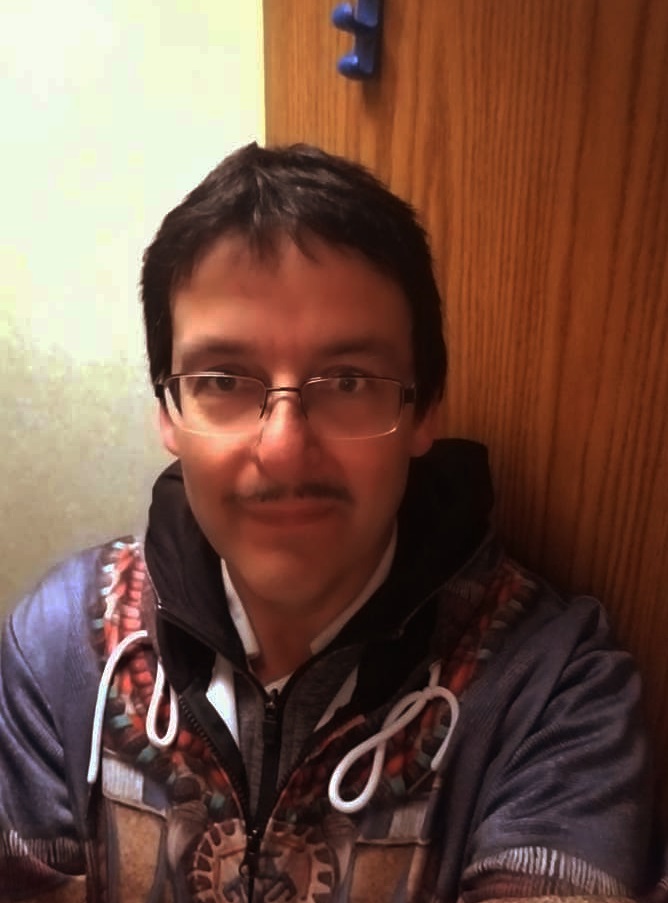
 |
| Thunder Cloud |
Column Five
Pjila'si (welcome). In studing my heritage and ancestry I have found that European history has not been kind to the Mi'kmaq to say the least. It is a continuing injustice that we must rise up and must stop. To state it briefly, its resolution will require restitution, forgiveness, and healing- to mention a few.
To add insult to injury, next year, the descendants of the original invaders whose occupation of our land that still go on today will celebrate the 400th anniversary of this invasion -infestation I like to call it. While it is true that our ancestors sided with the French, it was a love and hate relationship, where we were "between a rock and a hard place". Our survival required it. We had no choice- it helped us survive in the face of British Tyranny. No place was this more evident that the Port au Port Peninsula. Many will refer to the area as the French shore. The Mi'kmaq referred to the area as Nujio'qoniik, part of St. George's Bay. It is known as the French shore today, but it speaks little of the aboriginal history of the region. The area, while settled by French deserters- among others, is also home of the Mi'kmaq people. The unwritten and underlying history of the shame and secrecy of being Mi'kmaw in a British Colony has been used to the advantage of those who wish to promote the French cause at the expense of the aboriginal people, it seems to me. A once proud people were ashamed and put down. The half truths and promotion of this incomplete history must stop now. The name Jackitar is not one I like to hear, but is speaks of what was unspoken- that the French runaways blended in the local Mi'kmaq population. Many of our people were referred to as Acadians, and while that is also true, we are Mi'kmaq. There were of course other Acadians and settlers of European stock that migrated to the area as well. The French influences on our culture were done in places like Cape Breton, long before they migrated here. It continued here. So, we spoke more French that Mikmawisimk. We may live like European descendants, we are Mi'kmaq. We know who we are and will tell those who ask, not ask those who will tell us. Our aboriginal ancestry is our birthright and not a privilege to be given to us by those who are descendant of invaders who are guilty of Murder of men, women and children, those who have committed genocide. Assimilation and decimation of a people that was not as successful as hoped. But, it goes on today.
There is array of hope in the face of adversity; I do not consider myself a negative person, in spite of what I just said. I hold no malice towards anyone. I always say that the cup is not half empty, it is half full. Likewise, in spite of a few who deny our identity, I have found a great willingness by many promoters of the Francophone movement to cooperate with the Mi'kmaq who are still coming "out of the closet". We will need more of this attitude and it will help correct the wrongs and move us all forward.
Has there been an aboriginal presence in the area before the Europeans came? For those who had asked or checked, they would have found the answer to be absolutely yes! Bay St. George and Port au Port Peninsula has been long associated with as being Mi'kmaq and Beothuk. The Europeans and their descendants are the only ones wondering how long the Mi'kmaq were here. It cannot be disproved that our people were here long before they poisoned our shores. I must say that it provokes the use of strong language when I talk of these things. While I do not want to offend anyone, I make no apologies for it.
Archeologists are aware of several ancient ancestral sites in and around the Bay St. George and Port au Port Peninsula region. Many examples can be given, such as, just off the Peninsula to the North of the isthmus overlooking East Bay is a site, which was occupied by Dorset Palaeo-Eskimos and later by a group, which was probably ancestral Beothuk. Small archeological sites have also been located at Long Point and Gravel Pond, and much research needs to be carried out in this area. Many coastal settlements and encampments will sadly never be found because of the lost of shoreline where many of the artifacts have been washed away. These sites need to be protected and documented because it is an important part of our great history. I will make it my priority to continue to educate our people about our proud ancestry and rich heritage. Welįlin (thank you).
Compiled by Jasen S. Benwah
Local Mi'kmaq Researcher
Cape St. George, NL.
jasenbenwah@hotmail.com
www.benoitfirestnation.ca
The Georgian Newspaper, December 9-15, 2003
Website Copyright © 2003 Jasen Sylvester Benwah